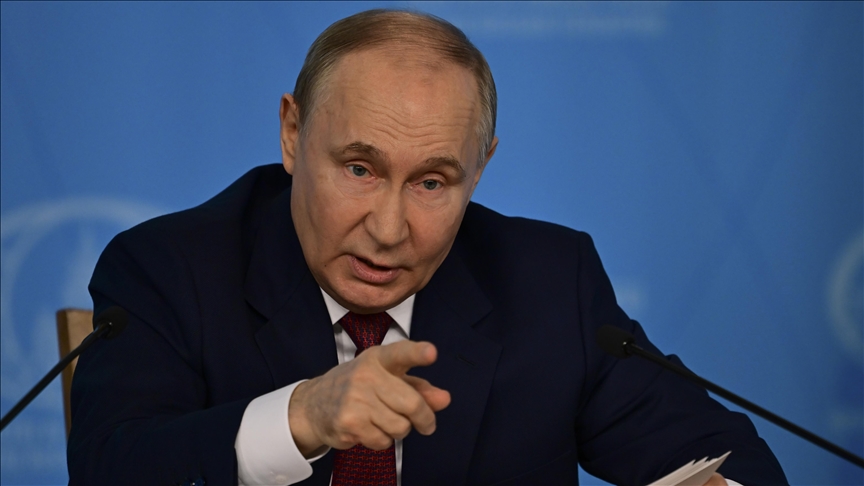Putin says Russia ready for talks with Ukraine, but there's a condition

In a surprising statement, Russian President Vladimir Putin announced that Russia is prepared to engage in negotiations with Ukraine, but with one major condition: the talks must be based on an abandoned agreement from 2022. This statement, made during the Eastern Economic Forum in Vladivostok, marks a shift in Putin's stance, which had previously ruled out talks amid Ukraine’s offensive operations in Russia’s Kursk region.
Ukraine’s bold cross-border military operation in August 2024 sent thousands of Ukrainian troops into Russia's Kursk region, seizing several villages and shaking up the conflict’s dynamic. In response, Putin initially dismissed the idea of peace talks, arguing that negotiations could not proceed under such circumstances. However, during his recent public appearance, Putin stated that while Russia is open to dialogue, it must be grounded in the negotiations that took place in Istanbul back in 2022.
This Istanbul agreement, although never finalized or made public, was reportedly an early attempt to halt hostilities shortly after Russia launched its full-scale invasion of Ukraine in February 2022. According to Putin, the two sides had managed to reach a mutual understanding. The Ukrainian delegation had even initialed the document, signifying that they were broadly satisfied with the terms. But, as Putin claims, Western interference – particularly from the U.S. and certain European nations – prevented the deal from coming to fruition. He suggested that Ukraine was pressured to abandon the agreement because Western powers aimed to ensure Russia’s strategic defeat, rather than pursue a negotiated peace.
Putin's comments highlight a recurring theme in Russia’s narrative throughout the war: that Western influence over Kyiv is prolonging the conflict. The Kremlin has often portrayed Ukraine as a pawn in a broader geopolitical struggle between Russia and the West, a claim that Ukraine and its Western allies reject.
The notion of resuming talks based on an old agreement raises several questions. What exactly were the terms of the 2022 Istanbul deal, and why did it fail? Neither Russia nor Ukraine has publicly revealed the full details, although Putin’s remarks suggest that both sides were close to some form of agreement. If such a deal were to be revisited now, nearly two years later, it would have to account for the significant changes on the ground, including shifting military gains and losses, humanitarian impacts, and growing political stakes for both countries.
Moreover, Ukraine has made it clear that it will not enter negotiations until Russian forces withdraw from occupied Ukrainian territories. Kyiv's leadership remains focused on regaining full territorial sovereignty, which includes not only the areas taken since the 2022 invasion but also Crimea, which Russia annexed in 2014. Any talks that revisit the Istanbul deal would need to reconcile these divergent positions.
Putin’s remarks also come in the context of discussions about potential mediators for future peace talks. He has previously floated the idea of involving countries like China, India, and Brazil in brokering negotiations, which could bring fresh perspectives to the table but also further complicate the process given the range of interests involved.
While Putin’s willingness to talk might appear to signal a potential breakthrough, it’s clear that the road to peace remains fraught with obstacles. Ukraine’s ongoing military offensives, Russia’s territorial ambitions, and the geopolitical chess game being played by external powers all weigh heavily on any prospects for meaningful dialogue.
In the end, Putin’s offer to talk under specific conditions underscores that the situation is far from simple. The conflict has evolved beyond its initial stages, and both sides are now entrenched in their positions. Whether revisiting a 2022 agreement can bring the war to an end, or whether it is simply another tactical move in a prolonged conflict, remains to be seen.


